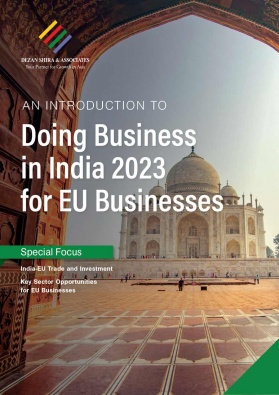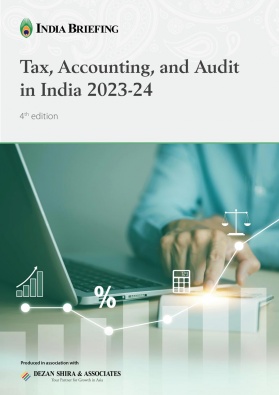Competition Law: India Introduces Draft Regulations for Commitment and Settlement Proceedings
The CCI introduced draft regulations for Commitments and Settlements proceedings on August 23, following the Competition (Amendment) Act, 2023. These frameworks provide companies—that are implicated in cases of abuse of dominance and anti-competitive agreements—the opportunity to settle with the CCI. Stakeholders can submit comments until September 13, 2023. Commitments and settlements offer an alternative to litigation and are aimed at quicker dispute resolution. The mechanisms entail specific application processes, evaluation criteria, oversight, and fee structures.
In a significant development, on August 23, 2023, the Competition Commission of India (CCI) unveiled draft regulations pertaining to Commitments and Settlements proceedings. This move follows the earlier passage of the Competition (Amendment) Act, 2023, which brought about substantial changes to the existing Competition Act of 2002. Notably, the amendments enable parties to approach the CCI for commitments and settlements in cases involving anti-competitive vertical agreements and abuse of dominance. However, it’s important to highlight that this mechanism doesn’t extend to cartel cases.
These regulations, while not yet enforced, mark the initial step towards operationalizing the Commitments and Settlements frameworks.
The CCI’s newly proposed Settlement and Commitment Scheme introduces a potential lifeline for major technology companies embroiled in investigations, providing avenues to address allegations of abuse of dominant position while aiming to streamline regulatory processes and facilitate market adjustments.
Concerned stakeholders have until September 13, 2023, to provide their comments on the proposed regulations through the CCI’s official website.
Commitment and settlement mechanisms for abuse of dominance and anti-competitive agreements in India
The Amendment Act 2023 introduces a settlement and commitment mechanism for enterprises facing inquiries related to abuse of dominance or anti-competitive agreements.
Under this mechanism, an enterprise can choose to submit an application for settlement to the CCI after receiving the Director General’s (DG) report but before the CCI passes an order. The CCI will evaluate the nature, gravity, and impact of the contraventions and may accept the settlement proposal, subject to the terms and implementation details specified in the regulations. If the CCI and the concerned party do not reach an agreement on settlement, or if the CCI deems settlement inappropriate, the inquiry will proceed.
Similar procedures are outlined for offering commitments, where enterprises can apply to provide commitments to the CCI after the CCI has directed the DG to investigate based on a prima facie opinion but before the DG sends their report. The CCI will consider the nature, gravity, impact, and effectiveness of the proposed commitments before accepting or rejecting them.
If the applicant fails to comply with the CCI’s order, makes false or incomplete disclosures, or if there is a material change in the facts, the CCI’s order will be revoked and withdrawn. The applicant may be liable to pay legal costs up to INR 10 million, and the inquiry regarding abuse of dominance or anti-competitive agreements may be initiated or reinstated.
The settlement and commitment framework aims to reduce litigation and expedite complaint resolution with more flexibility. It’s worth noting that compensation may also be awarded in settlement cases, adding to the potential liability for entities opting for the settlement mechanism.
What are the recent draft regulations regarding commitment and settlement frameworks?
Commitment framework
- Timing and filing: Commitment applications must be submitted within 45 days of receiving the prima facie order from the CCI. Extensions, up to 30 days, may be granted for condoning delays. The entire commitment process, including extensions, should conclude within 90 days of receiving the commitment application. During this period, the CCI’s inquiry into the applicant remains on hold.
- Application contents: Alongside basic corporate details and information on past violations or ongoing proceedings, the commitment application should encompass the CCI’s prima facie opinion, comprehensive and honest disclosure of relevant facts, particulars about the alleged contraventions’ nature, duration, seriousness, and impact, details on how the proposed commitments address the contraventions and competition concerns, and specifics regarding the implementation and oversight of the offered commitments.
- Assessment criteria: The CCI evaluates the efficacy of the proposed commitments by considering the type of conduct, duration, and scope of the alleged contraventions, the adequacy of commitments in addressing competition concerns, the feasibility of implementation, and ease of monitoring.
- Comments and suggestions: The CCI grants the concerned party, the DG, and other relevant stakeholders the opportunity to provide comments, objections, and suggestions based on a non-confidential summary of the commitment application. In some cases, the CCI can even invite public comments based on this summary published on its website.
- Nature of commitment order: The CCI’s order accepting the offered commitments is not a declaration of contravention by the applicant. It is noteworthy that the CCI can continue investigating other non-participating parties despite accepting an applicant’s commitment application. Information from the commitment application can be used against the applicant and other parties. If the commitment application pertains only to some of the alleged contraventions, the CCI’s inquiry into the remaining contraventions persists. Orders on commitment applications are non-appealable.
- Implementation and oversight: Independent agencies can be appointed by the CCI to supervise commitment implementation.
- Revocation and fees: Failure to adhere to the commitment order or make misleading disclosures can lead to legal costs and the revival of the inquiry. A filing fee, varying between INR 500,000 and INR 5 million, accompanies the commitment application.
Settlements framework
- Timing and filing: Settlement applications should be filed within 45 days of receiving the DG Report, with potential 30-day extensions. The entirety of settlement proceedings, including extensions, is anticipated to conclude within 120 days of receiving the settlement application.
- Application contents: Similar to commitment applications, settlement applications should include all relevant details, plus findings from the DG Report and proposed measures to address concerns.
- Consideration and comments: The CCI evaluates settlement applications based on criteria resembling those for commitment applications. Parties, the DG, and others are invited to provide comments and objections, though public comments aren’t part of the settlement process.
- Nature of settlement order: As with commitments, acceptance of settlements isn’t an admission of contravention. The amendments allow for follow-on actions for damages based on settlement orders. The CCI can also continue probing non-participating parties and using information against them. If a settlement application covers only certain contraventions, the CCI’s inquiry into the rest persists. Orders on settlement applications are non-appealable.
- Settlement amount: The CCI determines the settlement amount, with a possible discount of up to 15 percent based on cooperation, disclosure, and settlement proposal.
- Implementation and oversight: Implementation oversight parallels the Commitments framework.
- Revocation and fees: Revocation processes and fees align with the commitment framework.
About Us
India Briefing is produced by Dezan Shira & Associates. The firm assists foreign investors throughout Asia from offices across the world, including in Delhi and Mumbai. Readers may write to india@dezshira.com for more support on doing business in India.
We also maintain offices or have alliance partners assisting foreign investors in Indonesia, Singapore, Vietnam, Philippines, Malaysia, Thailand, Italy, Germany, and the United States, in addition to practices in Bangladesh and Russia.
- Previous Article Chandrayaan-3: India’s Moon Landing Spotlights Space Sector Advancements
- Next Article Understanding the Role of Independent Directors in Indian Companies









